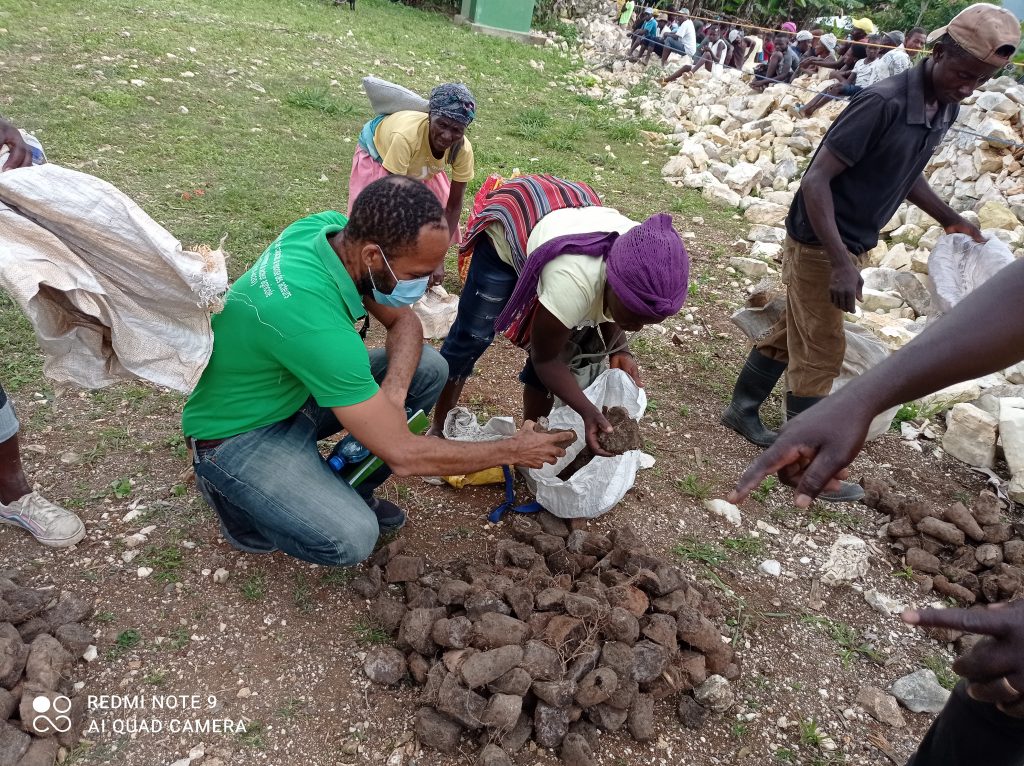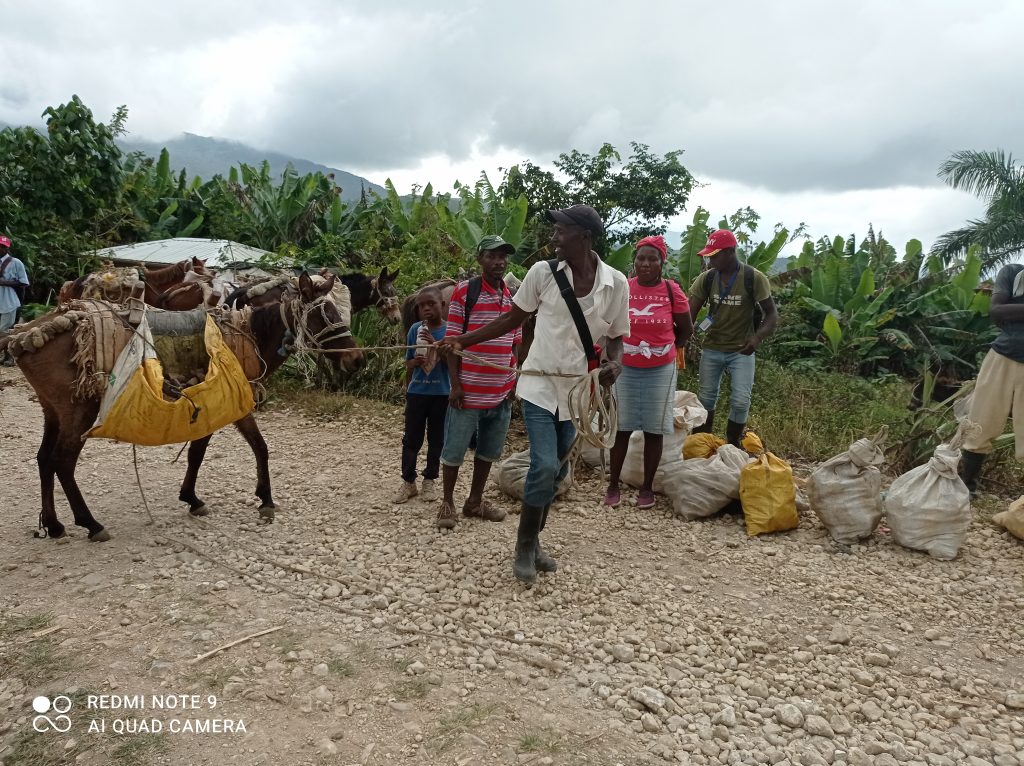Seeds of new life for those who lost everything in Haiti earthquake
Rebuilding has been slow, following the earthquake that hit Haiti in August 2021. Distribution of seeds and saplings improve food security and help people make a living.
IN AUGUST 2021, a devastating earthquake shattered the lives of tens of thousands of families in southern Haiti. The UN estimated in the autumn that in the regions worst hit by the destruction, Grand’Anse and Nippe, more than 650,000 people were in need of immediate disaster relief.
Due to challenging circumstances, rebuilding has been slow. The Haiti relief operation has been complicated not only by the devastation caused by the earthquake but also by criminal gangs seeking to benefit from the chaos in the region.
In cooperation with its German partner Diakonie Katastrophenhilfe (DKH) from the ACT Alliance, and the local organisation Fondation Nouvelle Grand’Anse (FNGA), Finn Church Aid’s work in Haiti includes supporting a training focused on farming methods in Haiti, in addition to distributing seed packets. In 2021, 813 people participated in the training, and 810 farmers received packets containing material needed for growing produce such as yams and peppers. The aim of the project is to reach 1,000 people through the training, and to distribute farming assistance to 1,000 farmers.
In addition, families have received assistance in cash, enabling them to buy plantain cuttings from local farmers. Selling cuttings promotes the local economy and supports the livelihood of the farmers while growing plantains for food also helps families.

Seeds help to make a fresh start
One of the people picking up the seeds to make a fresh start was mother of five Augustin Magalite, 47. The autumn was a sad time for the family. Magalite’s spouse had recently passed away, and her cousin disappeared in the August earthquake while in the yard at home. The son of another cousin was shot, and was seriously injured. Even one of Magalite’s children was hurt during the earthquake.
Life suddenly became rough, and there was a shortage of everything.
“Without this assistance, we wouldn’t be able to grow anything in our garden this year. All my money went to the funeral of my spouse, who died in the autumn. This arrived just in time, like a breath of fresh air,” says Magalite after receiving seeds and saplings to secure the family’s food supply.
The Magalite family is no stranger to devastation caused by natural disasters. In 2016, Hurricane Matthew hit Haiti and took their home. Rebuilding their life is all too familiar.
“Now I can grow food for my children and sell some of the crops in order to earn money.”
After the earthquake took everything, a garden of one’s own provides a livelihood
Life has also been hard for Marie Milianne, 53. Like Magalite, the widowed mother of five rebuilt her life after the 2016 hurricane. Her house was almost completed when she lost it in the August earthquake. Unlike Magalite, Milianne says that she has received disaster relief in the form of hygiene supplies and shelter.
For Milianne, who supports herself by farming, having a garden of her own is a necessity. She tells us that she shares her farming expertise with others who have received seeds and saplings as relief, and soon she hopes to have saved enough money to be able to buy livestock.

Farmer and father of four Dieudonné Victorin, 54, lost both his home and his brother in the August earthquake. In the autumn, an emergency shelter set up in the neighbour’s yard has served as home for the family.
“I’m sowing these seeds to grow crops with which I can also help my sisters and brothers,” says Victorin.
As a professional farmer he believes that the seeds he received as relief will provide good crops. Still, he also hopes to receive assistance in cash, which he could use to buy the supplies that his family needs.
Finn Church Aid has supported the Haiti relief operation from its disaster fund. A total of 200,000 euros has been allocated to the operation.
To provide immediate emergency relief in the Grand’Anse region in Haiti, FCA’s partner organisations DKH and FNGA have already provided 1,005 families with shelter serving as housing, as well as basic food products. An additional 1,005 families have received hygiene supplies. Relief distribution continues in the region, and 1,000 families are provided with cash assistance allowing them to buy necessities such as groceries or equipment used for rebuilding.
In addition to cash assistance, 16 local loan groups granting microloans are set up in the region. These microloans are used to support the livelihood and survival of 16,500 people after the earthquake.
Text: Elisa Rimaila
Translation: Leena Vuolteenaho